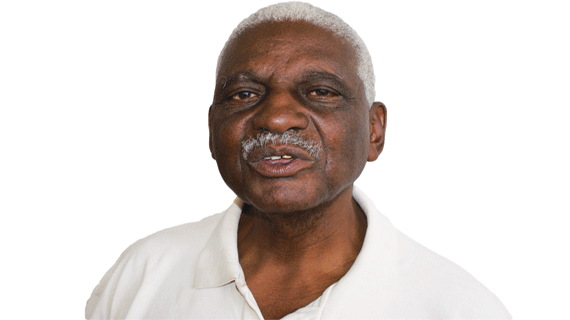
THIS ARTICLE shows how family members relate to each other. All of them are important as none of them can assume their relative positions without the other.
In Ndebele culture children are brought up to realise how they will relate to their parents. They relate differently to father than they do to mother. It is believed that in order for father to maintain his authority status he must be somewhat aloof from the children in some cases even from his wife/wives.
First of all there is a linguistic relationship within the family. The shame of it all nowadays is that one does not hear children say ubaba, umama, ukhulu, ubabakazi, umzawami, udadawethu and so on. Instead one hears: udaddy, umammy, ugranny, u-antie, ucousie, usisi and so on.
Just what has gone wrong? When father calls a child the response is, “Daddy-y-y!” What mental colonisation! Sad language colonisation! Gross cultural colonisation! Total people colonisation (if you get the meaning)!
The wonder of it is that we have enslaved ourselves, in language terms without anybody driving us behind.
We have already acknowledged that in Ndebele culture the family is patriarchal, that is, father is the head of the family. All members of the family are under his control, irrespective of their age, for as long as they reside within his homestead which is designated by his family name (isibongo); koNcube, koNyandeni, koJiyane.
All problems affecting the family are reported to father and he sanctions (gives permission) what is to be done. No important event takes place at home without father’s approval. Utshaya umthetho. However, this should not be seen as meaning that father is a dictator.
He consults and considers other opinions especially from his wife as well as from ugogo or ubabamkhulu (paternal, that is), and senior sisters. Children express their opinions, ideas and requests or complaints through “mummy”. It is not often that a child will brave it to “daddy”.
- Chamisa under fire over US$120K donation
- Mavhunga puts DeMbare into Chibuku quarterfinals
- Pension funds bet on Cabora Bassa oilfields
- Councils defy govt fire tender directive
Keep Reading
According to Ndebele ways when father calls, a child responds, “Ba-a-ba!” and Ma-a-a” to mother. Similar responses are given appropriately representing the child’s relationship to the caller.
Some parents nowadays allow their children to respond, “Hello!” or, “Yes daddy, what do you want?” (Translate this into Ndebele and feel the awkwardness.) It is so uncultural and even uncultured. It’s plain crude. That is a result of indiscriminate borrowing, no, of mimicking other people’s culture.
In Ndebele culture husband and wife do not call each other by first names. For instance it is considered not polite for a Ndebele woman to call her husband and say, “Mthoniselwa, ake uzengibonisa lapha!” Or a man to call his wife, “Sincengani, akungiphe ingidi yami lapho,” No. The man calls her “MaNcube” or NakaMhlonyana.”
For those who read the Bible the husband/ wife relationship is the Abraham/Sara relationship. The joy of it (for the gender conscious) is that a married woman never loses her family name (maiden name).
What is magic about “Mrs Nyoni” or “Mrs Mpungutshe?” The title “MaNcube” or “NakaSozibeli” is enough to signify her marital status. A woman does not need the title “Mrs” to indicate that she has a husband.
In fact it jars in the ears to introduce a woman in Ndebele by saying, “lo ngu Mrs Dungeni.” No, no, no! “Lo nguMaTshili umkaDungeni.” Beautiful! Why not revisit this culture and live it?
The relational terms “ubhudi” and “usisi” now seem to have been assimilated into the Ndebele language culture. In the same vein some people want to force the acceptance of terms like udaddy, u-auntie, and ugranny and so on.
That is not the way language development happens. Anyway, children relate to each other largely using these terms of foreign origin which have undergone certain fundamental changes. “Hawu sisi, uthini ngobhudi wami okhala ngawe kangaka?” The correct terms “umnewethu” and “udadewethu” are still very much alive and should be encouraged.
To a great extent family relations are governed by age, with older people having a greater say in family matters. Although father has full control of his homestead if his father and mother are still alive in an advanced stage so that he is looking after them they continue to have controlling influence on his conduct within the home.
He is expected by custom to listen to their advice and to accept their guidance. For example, his wife /wives will appeal to them for any problems he causes them and they (his old parents) will tell him off to stop ill-treating them.
Even children, if they feel the harshness of their father they might appeal to their grandparents for protection.
If the man refuses the advice of his ageing parents he can be brought before a community court — usiwa phambi kwamadoda amkhuze. Similarly, the older children have a measure of control over their younger siblings.
They send them around (ukubathuma), they tell them off when they go wrong (bayabakhuza) and they teach them some preliminary life skills (ukubafundisa). Consequently life within a family is that of mutual respect and deference to one another according to age.
An important feature of family life is the prevalence of the family spirit, the togetherness that prevails even above any internal disagreements.
By and large the family members tend to work together, eat together, walk together in their respective age parties, fight together and so on. The community spirit is grown at home.
That is why the spirit of ngakithi is very strong: ngihlala ngakithi, lo ngowangakithi, lokhu ngokwangakithi.










